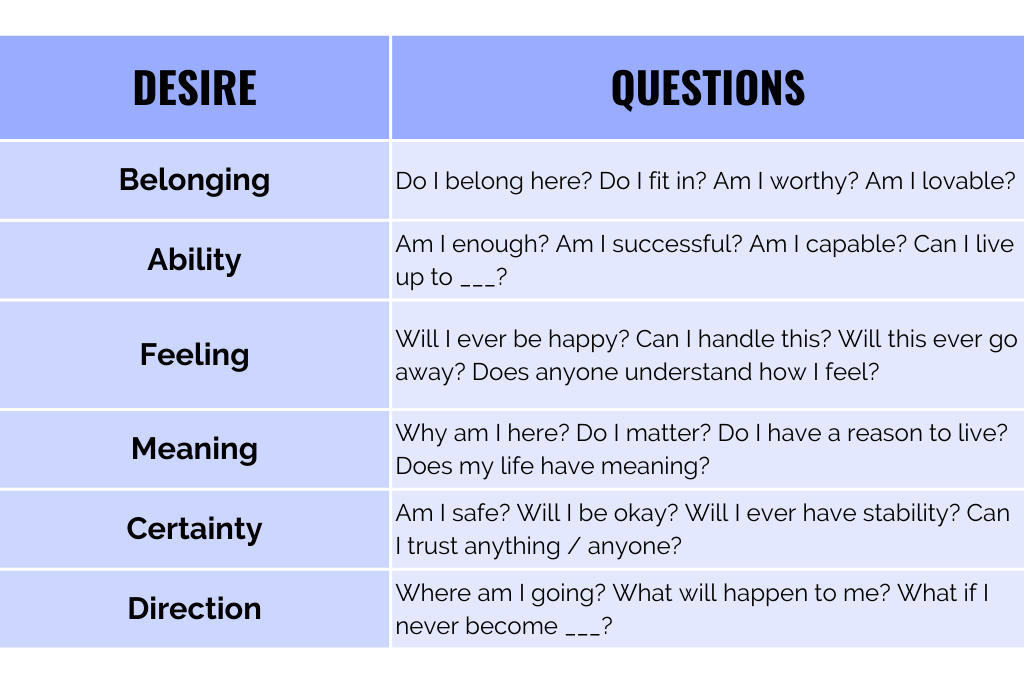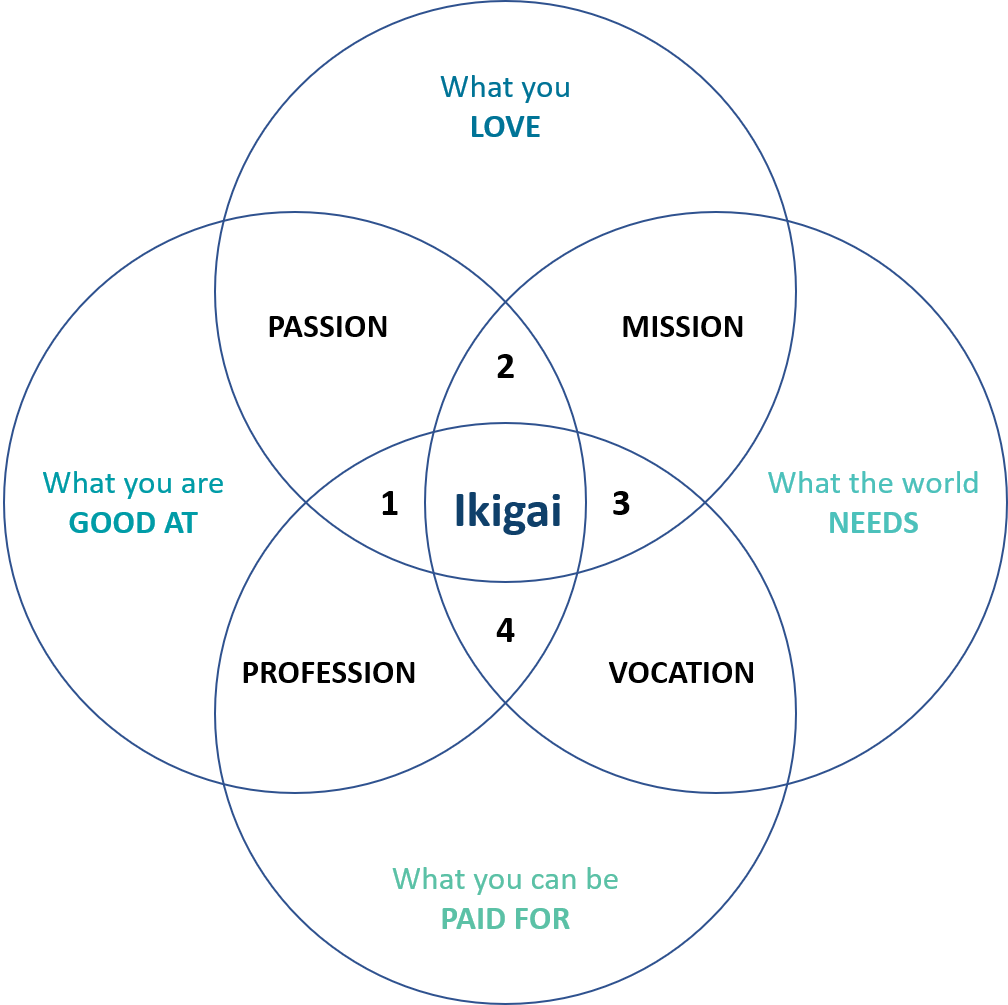What does it mean to find purpose at work?
A quick Google search yields over 7 billion results on why purposeful work matters, how younger generations prioritize finding meaning in their work, the benefits for organizations, and the list goes on. Many people recently impacted by industry shifts or layoffs may find themselves in the process of job searching. This uncertainty, while often challenging, is incredibly valuable because it allows you to reassess which direction you want to take your career, what skills and experience you have gained, and the impact you want to leave on your community.
Marc McCann is the founder of StepOutside, an organization that facilitates outdoor workshops, coaching, and management training for teams to grow in trust, support, and belonging. A few weeks ago, he hosted a virtual workshop focused on finding purposeful work during a recession.

Marc McCann is the founder of Step Outside.
Grab a piece of paper, put on some ambient music, and follow along! The point of this is not to be a writing assignment (you won’t be graded, we promise), but to help you get to know yourself better and determine what’s important to you.
Ways of being
In general, the focus at work is often on setting and meeting goals (or KPIs, or OKRs) that drive outcomes. While we are not able to control those outcomes or someone else’s actions, we do have the ability to decide how we respond in any situation. Marc refers to these choices as our ways of being – or “wobs,” for short. Our unique ways of being are tied to what we individually value. Rather than focusing on what we do, our wobs are about how we want to act or respond in that moment.
For instance, our marketing specialist Evelyn identified her wobs as: “with excellence,” “with authenticity,” and “collaboratively.”
Marc shared that his wobs were “wholeheartedly,” “with thoughtfulness,” and “with transparency.”
Some quick tips for identifying your ways of being:
- Finish the phrase “I want to act with __________.”
- Think of adverbs, or words that describe a verb or action.
Keep in mind when working with ways of being:
- It’s not realistic to always respond in a situation with our wobs, so be mindful not to use them as a tool for self-criticism or judgment.
- If your work environment or culture doesn’t seem to support a particular wob, it may warrant further reflection or conversation to see if there’s a broader concern to address with your leader.
Self-reflection or narrative
Think back to two memories where you felt most alive or energized, the first from your childhood and the second when you were a teenager or adult. What were you doing? Who was with you? Do any emotions stand out to you as you recall these memories? (If it helps, use the 5 W’s: who, what, where, when, and why.) Write down the details.
Once you’ve thought of your stories, are there any words of significance or feelings that really capture what made that day or time so memorable?
To continue with our earlier example: Evelyn’s stories shared a theme of togetherness and community. At those times, she felt contentment and connection.
Based on your memories, create a belief statement with those keywords that builds upon what you learned about yourself in the first exercise (wobs). What is it about those memories that you hope to apply to future experiences?
Evelyn’s example: I am most fulfilled in places where I can be with the people I love, participating in activities together.
Marc’s example: I believe that trust, connection, and courage are key ingredients in the recipe for fulfillment.
Find your why
Taking your belief statement from the last step, ask yourself, “What about this belief is meaningful to me? And what do I want for others or the world based on my experiences?” You guessed it – write the answer to those questions down.
Evelyn’s example: I am equipped with the ability to bring people together in community and find life along the journey.
Marc’s example: I want to help the world around me come alive.
Your core fear
There is often something deep within that drives us to do what we do – and it usually connects both our strengths and our struggles. If you were to frame what you fear most into a question, what would it be?
Marc explains: what we care about most is connected to our deepest pains, so we spend a lot of time and energy working to address that hurt with our purpose.
Take a look at the list of desires below and choose the one that resonates most. Then, review the sample questions and create your own. You’ll know you’re close when the question you’ve written brings up some discomfort or doubt.

Looking at the table, which desire and questions resonate the most with you?
Evelyn’s example: What if I don’t live my life to the fullest potential?
Marc’s example: Do I belong here?
Marc also shared that the tough, but important thing to remember is that this core fear will be something that follows us through life. Whenever we’re pursuing our purpose, that core fear is likely to show up. In reality, it’s just trying to keep us safe and protect us from getting hurt. The practice isn’t about getting rid of it, but making room for it, and then deciding not to let it guide our action so that we can move closer to our why.
Ikigai
If the journaling was difficult, identifying your ikigai may be another way to determine what drives you.
Ikigai (pronounced e-key-guy) is a Japanese word that loosely translates into “life worth or value.” Make a copy or a drawing of the diagram below to pinpoint:
- What you love
- What you’re good at
- What the world needs
- What you can be paid/rewarded for

Ikigai, a Japanese concept that loosely translates as “life worth or value,” is an excellent visualization of one’s passions and work.
Start by identifying your answers to what you love, what you’re good at, what the world needs, and what you can be rewarded for.
From there, list out your passions (what you love + what you’re good at), your mission (what you love + what the world needs), your profession (what you’re good at + what you can be rewarded for), and your work (what you can be rewarded for + what the world needs).
At the very center, where all the circles overlap, is your ikigai, your purpose or reason for being. This is where you want to find a short phrase that you can use to describe the consistent action that aligns your passions, skills, motivations, and work.
Evelyn’s example: Sharing joy with the world around me and including as many people as possible in the process.
Marc’s example: to encourage (i.e. invite courage)
How about you?
Understanding your strengths and motivations can better assist you in identifying what types of positions and industries align with your values, skills, and aspirations. Not every role will be a great fit, and in hard times, many of us feel the need to prioritize stability over fulfillment. That said, we hope these exercises begin to provide clarity on the types of roles that will energize, motivate, and satisfy you during your job search. After all, when you find a role where your skills, passions, and purpose align closely to the work, you’re much likelier to be a top candidate. And the tedious prep work for another interview surprisingly becomes a discovery process where you’re eager to find out whether the role and company are the best fit for you.
No matter where you are in the process, we’re here for you and hope you continue investing in yourself and your future!
If you have any questions regarding this exercise or the job search process, please connect with us over our LinkedIn, Facebook, and Twitter. You can also connect with Marc via LinkedIn or by emailing him at marc@stepoutside.us.
Written by Evelyn Kwong 2023



